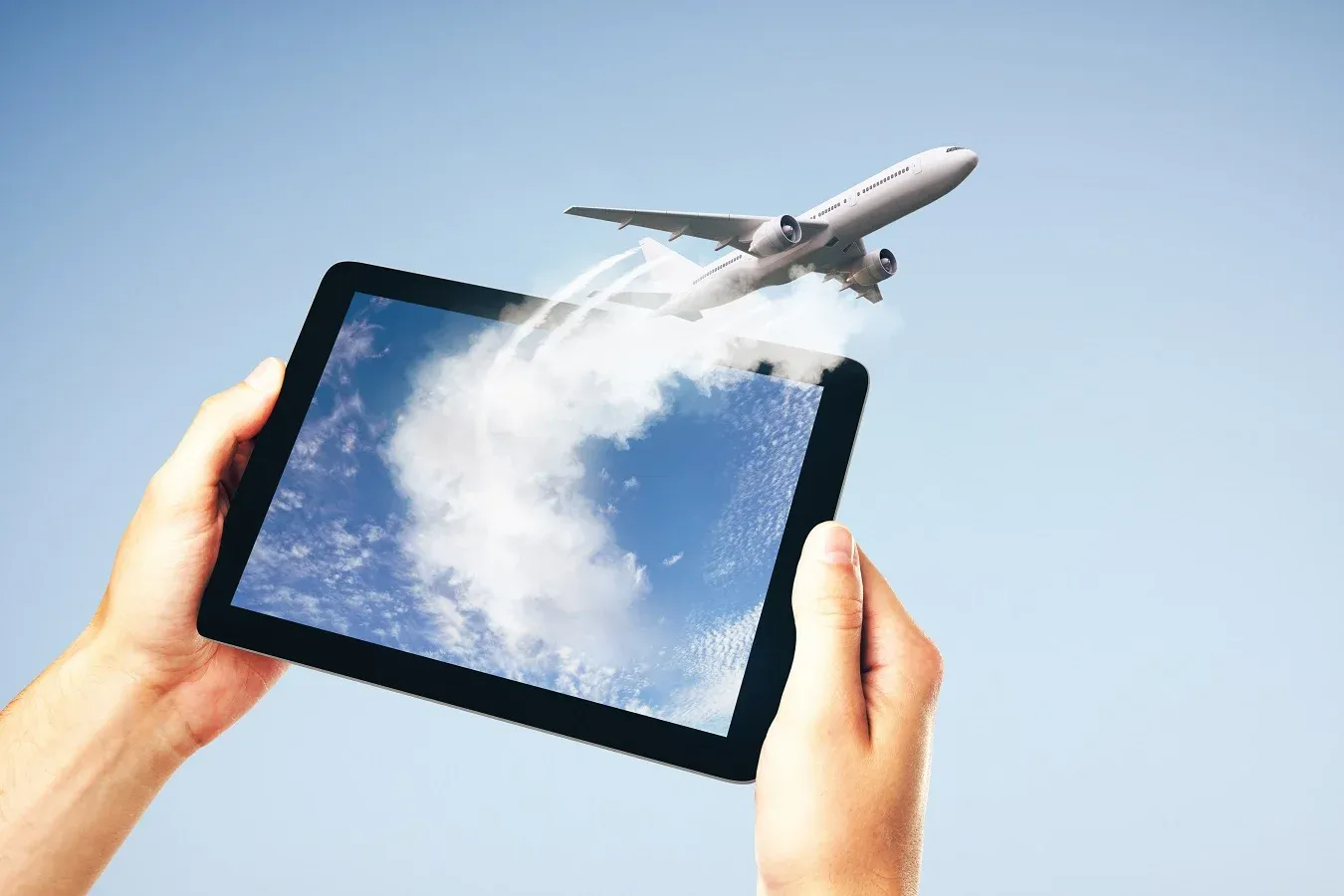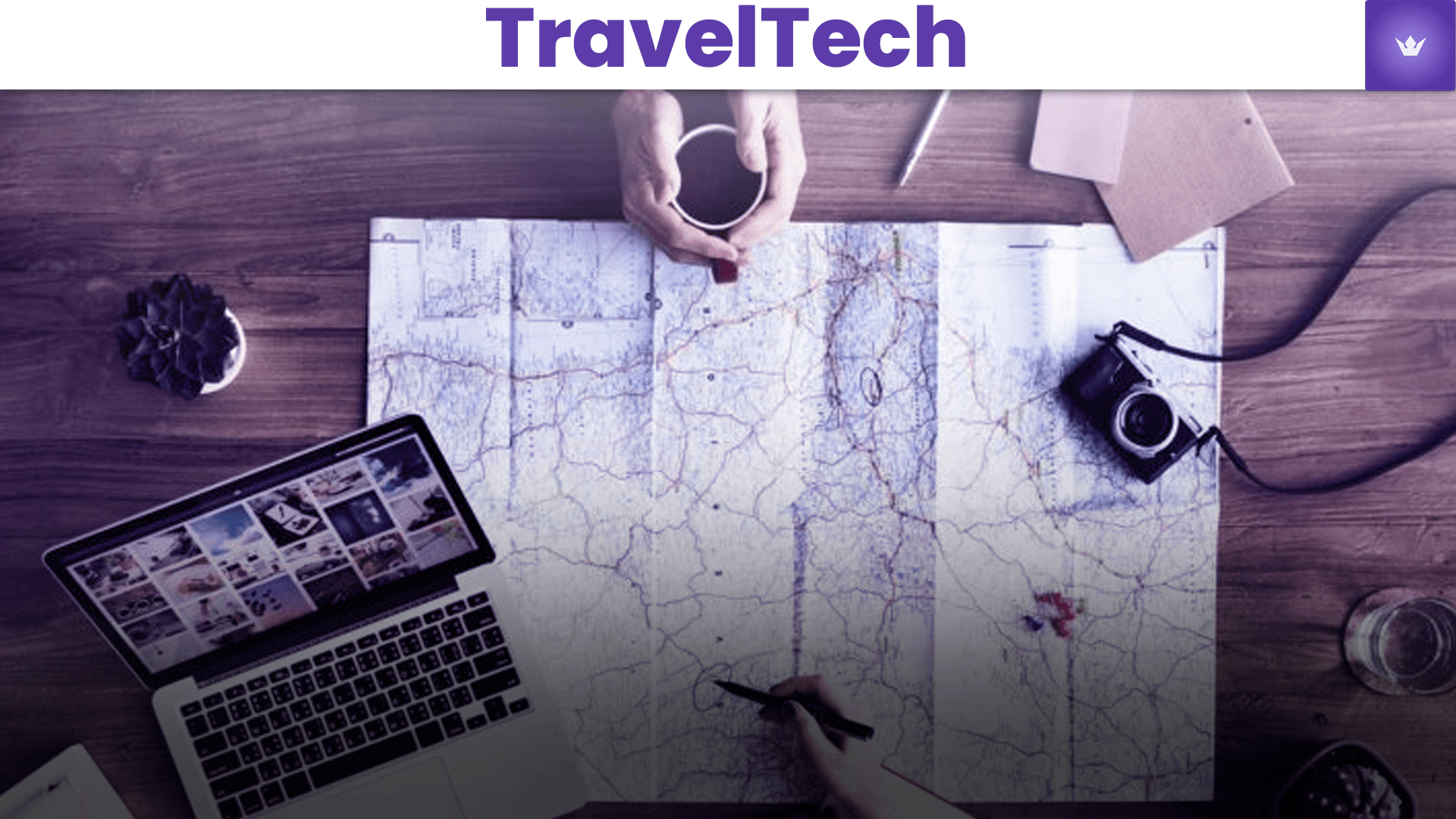Table of Contents:
- What is Travel Tech and Why It Matters
- The Impact of Travel Tech on Transportation
- Travel Tech Innovations in Accommodation
- How Travel Tech is Changing the Tourist Experience
- Travel Tech and Sustainability in 2025
- The Future Challenges and Opportunities of Travel Tech
What is Travel Tech and Why It Matters
Understanding Travel Tech in Simple Terms
Travel tech (travel technology) refers to the integration of technology into travel and tourism, fundamentally transforming how we plan, book, experience, and share our travels. Over the past decade, this industry has radically reshaped how travelers interact with destinations and providers. In 2025, it continues to grow significantly due to continuous technological advancements and evolving traveler expectations, profoundly reshaping everyone’s travel experiences.
If you've ever booked your vacations through online platforms such as Airbnb or Booking.com, ordered a ride with Uber, or used a digital assistant to plan your trips, you have already encountered travel tech at its finest.
Importance in Today's World
Travel tech matters because it simplifies travel planning, enhances experiences, promotes sustainability, and creates new economic opportunities. Personalization, ease of use, and real-time convenience are now standard expectations. For businesses within travel and hospitality, embracing travel tech has become crucial for survival, growth, and differentiation in a highly competitive market.
Additionally, according to research published by The Global Travel & Tourism Council, travel and tourism make up almost 10% of global GDP, and technology-driven advancements will further accelerate economic growth across many regions in the coming years.

The Impact of Travel Tech on Transportation
Revolutionizing How We Move
The transport sector has perhaps benefited the most visibly from travel tech. The old days of paper tickets, waiting in line at airports, or being lost in unfamiliar cities are becoming a distant memory. Today, technology streamlines transportation, allowing smoother and more efficient mobility.
Smart Airports and Stations
In recent travels, you might have noticed how airports are becoming smarter. In 2025, major airports worldwide now offer self-check-in kiosks, biometric passport controls, facial recognition, and baggage tracking with mobile alerts. Dubai International Airport, for example, DXB Smart Gates effectively speed up queues and drastically improve traveler satisfaction.
Bullet trains and metros worldwide similarly employ automated platforms. Technology eliminates hassles, reduces stress, and enhances your comfort before you even board your transport.
Ride-Hailing & Smart Mobility
Transport within cities has also dramatically transformed with travel tech. Apps like Uber, Lyft, and Bolt have drastically changed how we explore new destinations without thinking about confusing public transit maps or expensive taxi services.
Specialized mobility services like electric scooters (Bird and Lime) have ensured urban areas are more fluid and accessible than ever before.
For instance, my recent visit to San Francisco was significantly simplified thanks to these travel tech services. A quick app download, a glance at real-time public transport integrations, and I navigated the city seamlessly and happily.
Travel Tech Innovations in Accommodation
Smart Hotels & Home Rentals
Innovations in travel tech have dramatically reshaped the hotel and private rental sector. In 2025, guests can now easily request hotel room services, manage room temperature, unlock doors, and communicate directly with the hotel management—all via augmented reality applications or voice-activated devices. Major hotel chains like Marriott have already begun to adopt smart technology, significantly improving traveler convenience and satisfaction.
Vacation home providers such as Airbnb now offer extensive features to customize your experience—from digital hosts to virtual tours of your accommodation and local insights available at your fingertips from your mobile device.
Personalized Stays & AI Recommendations
Furthermore, advanced AI and machine learning are powering hyper-personalized recommendations. Hotels recognize and anticipate guest preferences, making each stay unique.
Booking platforms like Booking.com or Expedia utilize AI to make personalized recommendations based not only on price but on lifestyle preferences, past reviews, and family travel requirements.
Advanced chatbots seamlessly integrate into customer support, allowing you to find assistance anytime, anywhere, creating confidence and ensuring worry-free travels.
Check out this insightful video about the smart hotels of tomorrow on YouTube.
How Travel Tech is Changing the Tourist Experience
Immersive Experiences Through AR & VR
Travel tech innovations have drastically improved how tourists experience new destinations. Augmented Reality (AR) and Virtual Reality (VR) now enhance visits to museums, archaeological sites, and urban attractions.
For example, travelers visiting Rome’s Colosseum can visualize ancient gladiatorial matches using AR-enabled smartphones or glasses, enhancing their emotional connection to locations. National Geographic’s immersive experiences exemplify travel tech's power.
Real-Time Language Translation & Accessibility
Language barriers, once a considerable obstacle while traveling, are no longer an issue. Apps leveraging AI-driven real-time language translations, including integrated voice-to-voice interpretation and augmented reality guidance (simultaneous text translation), ensure memorable and hurdle-free interactions between cultures.
For instance, during my last trip to Japan, having Google Translate's camera translation feature significantly enriched my exploration and interaction—a technological marvel ensuring maximum cultural immersion.

Travel Tech and Sustainability in 2025
Enabling Responsible Tourism
Sustainability is at the forefront of travel tech advancements. Research from Travel Foundation highlights that travelers are increasingly concerned with reducing their carbon footprint.
Travel tech addresses these concerns through apps like Hopper, which now presents airlines’ and hotels’ carbon footprint ratings, enabling tourists to make informed choices aligned with sustainability goals.
Smart Destinations and Conservation
In 2025, travel tech powers smart tourism destinations that monitor and manage overtourism. Cities like Venice and Barcelona now control visitor flow through apps, real-time data collection, and careful resource management, ultimately benefiting both tourists’ experiences and sustainable management of locations.
The Future Challenges and Opportunities of Travel Tech
Cybersecurity in Travel Tech
One primary challenge facing travel tech is improving data privacy and security. High-profile data leaks have heightened travelers' concerns about their privacy. Increased transparency, stronger cybersecurity fortifications, and consumer education programs are the critical actions the industry must prioritize.
Inclusive Tech: Accessibility in Travel
Additionally, the industry faces the significant opportunity of including all travelers in technological advancements—especially those differently-abled. Innovations in smart navigation, artificial intelligence assistance, voice-guided tours, and inclusive mobile apps can democratize travel experiences to ensure everyone can easily explore our beautiful world.
Career and Economic Opportunities
Travel tech rapidly brings career and economic growth opportunities. Jobs are expanding in fields ranging from data analytics, app development, and customer support to green technology implementations. Ongoing skills enhancement and openness to change will position professionals strongly in this thriving sector.
Conclusion: Embracing Travel Tech in 2025
Travel tech profoundly shapes travelers' entire journeys—from planning and transport to experiences at destinations. In 2025, the emphasis remains firmly fixed on enhancing convenience, personalization, inclusiveness, and ethical responsibility. To learn more about emerging trends, I recommend regularly checking authoritative resources like Skift and PhocusWire.
Embrace travel tech to enhance your experiences and fully immerse yourself in the exciting global opportunities that lie ahead.


